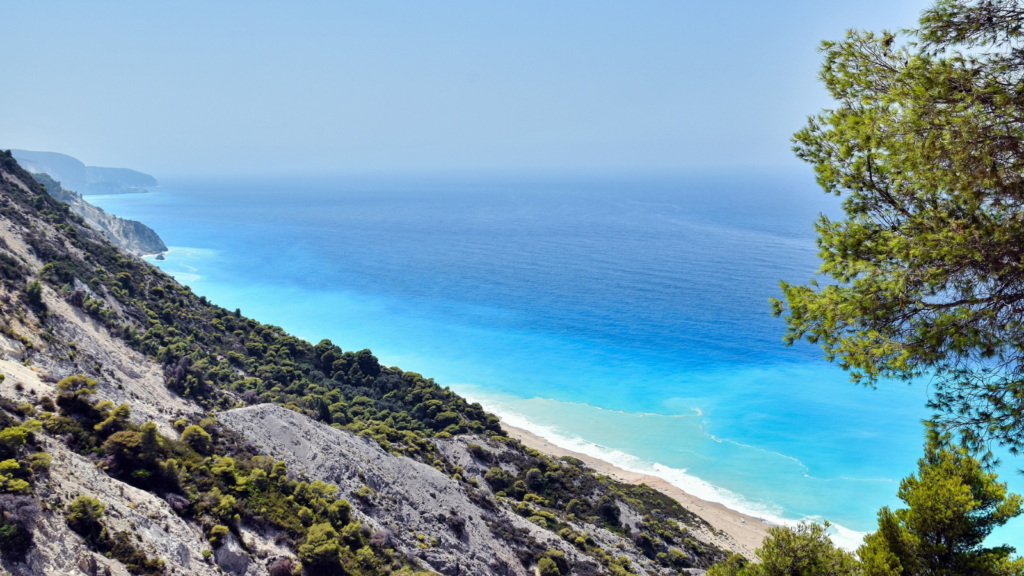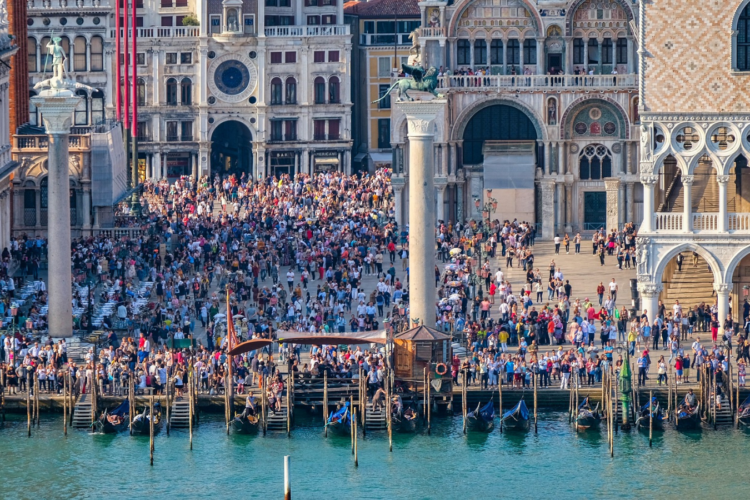The tourism industry greatly impacts the economy, in ways such as providing jobs to locals and increasing funding for new and historical infrastructures. Traveling has become more accessible than ever, meaning tourism has skyrocketed. Although the industry contributes to the livelihoods of many communities, it also comes with disadvantages. Overtourism is the term used to describe the phenomenon when popular destinations are overcrowded with tourists and negatively affect the quality of life in the area.
Europe is a hotspot summer destination for people around the globe. Italy, Greece, and Spain are only some of the countries that experience a high influx of tourists each year. Overtourism threatens environmental sustainability and cultural preservation in highly sought after cities. In 2021, Venice placed a ban on cruise ships docking at its historic center. Considered a World UNESCO Heritage Site, the large ships were causing damage to the lagoon and contributing to pollution, putting the city at risk. Currently, Barcelona and Marseille are considering passing stricter regulations on the issue, while Amsterdam and Santorini have followed through with new policies.
Many locals are also suffering from rising prices of housing and rentals. Real estate has prioritized short-term rentals to cater to foreigners willing to pay higher prices, making it difficult for residents to find affordable long-term housing. In October of 2022, Portugal passed a new visa scheme for digital nomads or remote workers to live and work in the country, which mostly attracted Americans and Brits. Portuguese cities like Lisbon are known for their beautiful architecture and low cost of living. Many digital nomads who settled in Lisbon are getting paid at the same rate as if they were back in their home country, which is more than the average salary of Portuguese residents. As a result, rent and property values are drastically increasing, creating a housing crisis for the locals.

So, if you’re thinking of visiting popular European destinations this summer, here are some ways you can help combat over-tourism. The Greek government is asking visitors to explore more than just the touristy islands the country is known for. While creating your Greece itinerary, try exploring the small village of Gialova, or the tiny island of Ikaria. Apply the same concept when visiting other European countries by taking the unbeaten path and seeking less touristy places. Not only will you enjoy the scenery without the bustling crowds, but you will also have a much higher chance of an authentic experience interacting with locals.
Furthermore, invest in ethical, local tour companies when exploring these destinations instead of opting for big travel agencies. With this, you can directly inject money into their economy, which will benefit the residents instead of filling the pockets of big corporations. Also, travel during the non-peak periods if you have the flexibility to do so (around April to Mid-June and September to October). There may be some downsides, like the weather or some activities being unavailable, but you can enjoy cheaper flights and accommodations.
Finally, be a responsible traveler. It is important to be eco-conscious and practice sustainability when traveling, such as bringing a reusable shopping bag, observing proper waste disposal, and choosing sustainable accommodations. Aim to always leave the place in a better condition than when you first arrived. As Chief Seattle once said, “Take only memories, leave nothing but footprints.”
Roselle Torres
1
1 If you found the article interesting, I also recommend this:




